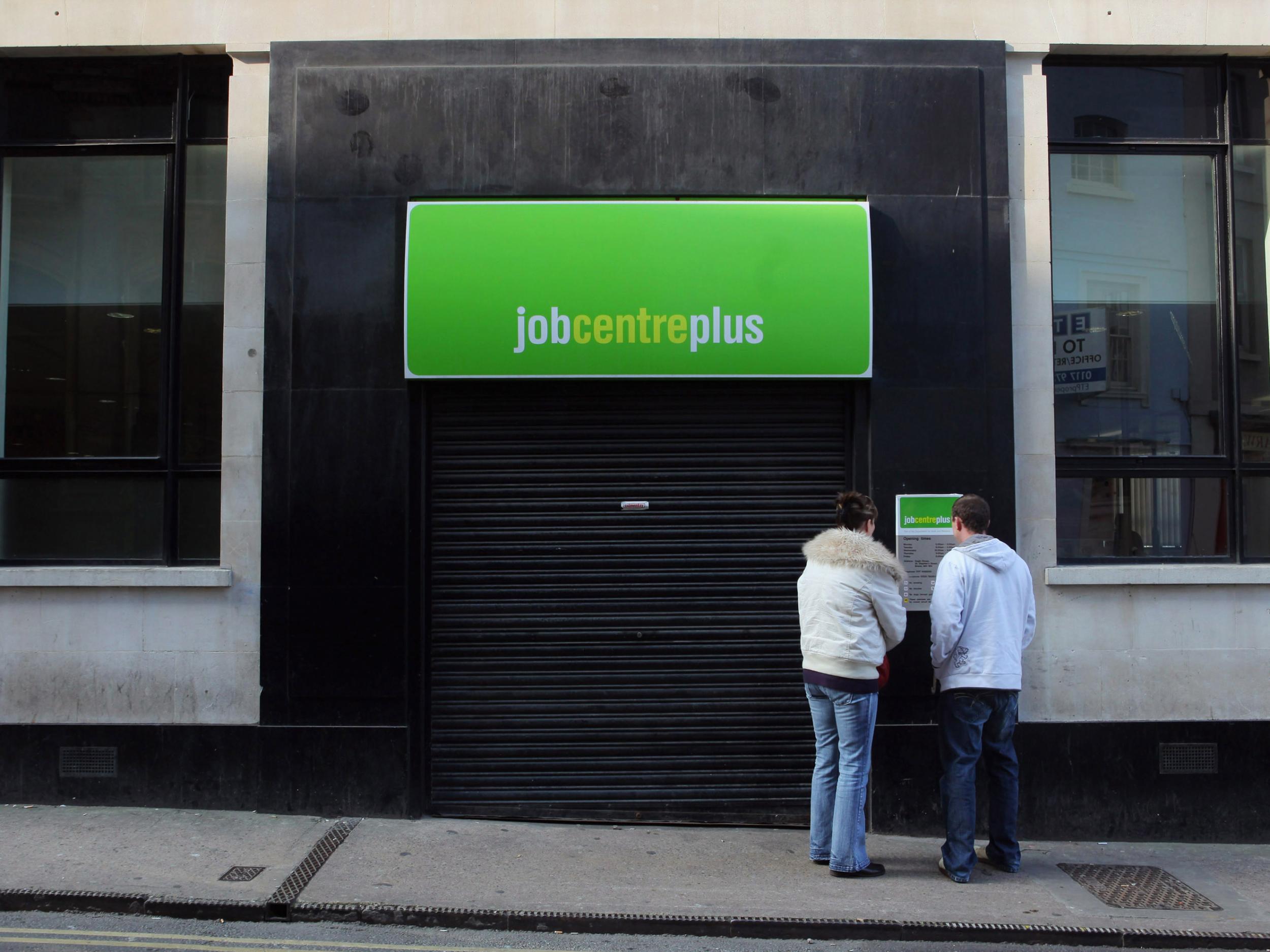Unemployment falls by 65,000 but millions of workers remain in poverty
Wage growth slows and economists raise concerns over stalling productivity

UK unemployment fell to 1.3 million in the first three months of the year, official figures show. The number of people out of work but unable to find a job dropped by 65,000 in the year, taking unemployment to 3.8 per cent – a new 44-year low.
However, annual wage growth slowed to 3.2 per cent in the three months to March compared to 3.5 per cent a month earlier, the Office for National Statistics (ONS) said.
Pay rises are outstripping rising prices, on average, with inflation at 1.9 per cent. However, the gap is narrowing.
In March alone, average pay rose 2.3 per cent compared to a year ago meaning real wage rises are closer to 0.4 per cent. New inflation data will be released next week, giving a more up-to-date picture of the value of people’s pay packets.
Economists warn that further wage increases may be unsustainable unless the UK economy becomes more productive.
Tuesday’s ONS report shows that the amount each worker produces per hour slowed for the third month in a row.
The proportion of the population in work hit its joint-highest on record in March at 76.1 per cent, partly driven by an increasing number of women in employment.
Despite unemployment hovering at its lowest rate since 1974, around 4 million people are now working while living in poverty thanks to slow wage growth and cuts to in-work benefits.
Firms are also holding off investment in new equipment, technology and plants as uncertainty around Brexit moves into its third year.
Ben Brettell, senior economist at Hargreaves Lansdown said: “The ‘British disease’ of low productivity is a spectre which continues to haunt us.
“There are valid concerns that UK firms are hoarding labour instead of much-needed capital expenditure. Why would you invest large sums in new plant or machinery in such uncertain times, when you could hire an extra worker and get broadly the same result?”
Tom Stevenson, investment director for personal investing at Fidelity International said a “murky outlook” is causing firms to “hire now with the option to fire later rather than make irreversible investments in new kit”.
He added: “Perhaps it is still too soon to get ahead of ourselves, though – a week before new inflation data, there’s a question mark over how real the earnings growth is.
“Rising wages are bound in due course to feed through into wider price rises.”
TUC general secretary Frances O’Grady expressed concern that pay growth was stalling again.
“The last thing workers need is another hit in the pocket when real wages are still lower than a decade ago,” Ms O’Grady said.
“The government must raise the minimum wage to £10 as quickly as possible. And give unions the freedom to enter every workplace to negotiate fair pay rises.“
Subscribe to Independent Premium to bookmark this article
Want to bookmark your favourite articles and stories to read or reference later? Start your Independent Premium subscription today.

Join our commenting forum
Join thought-provoking conversations, follow other Independent readers and see their replies